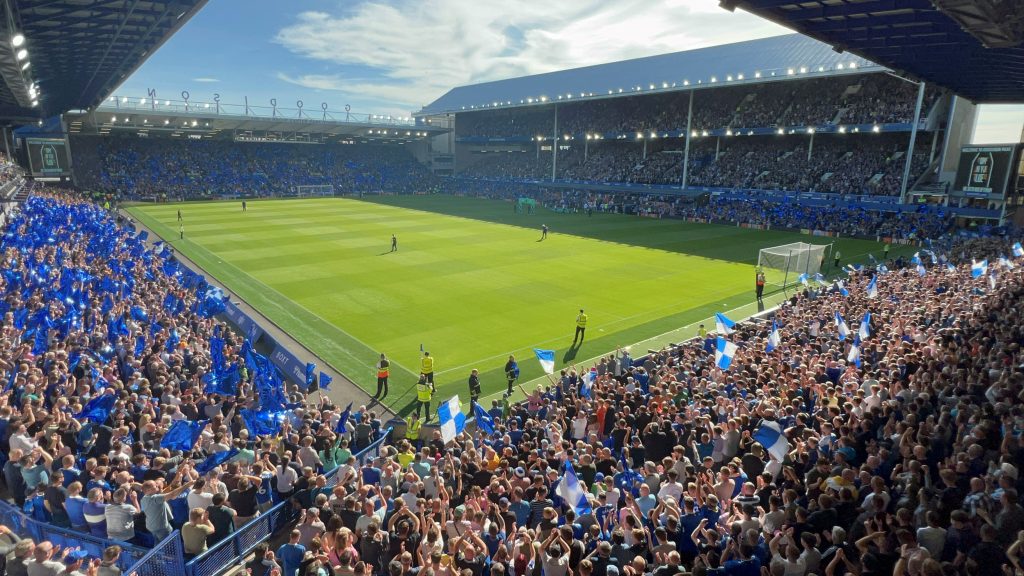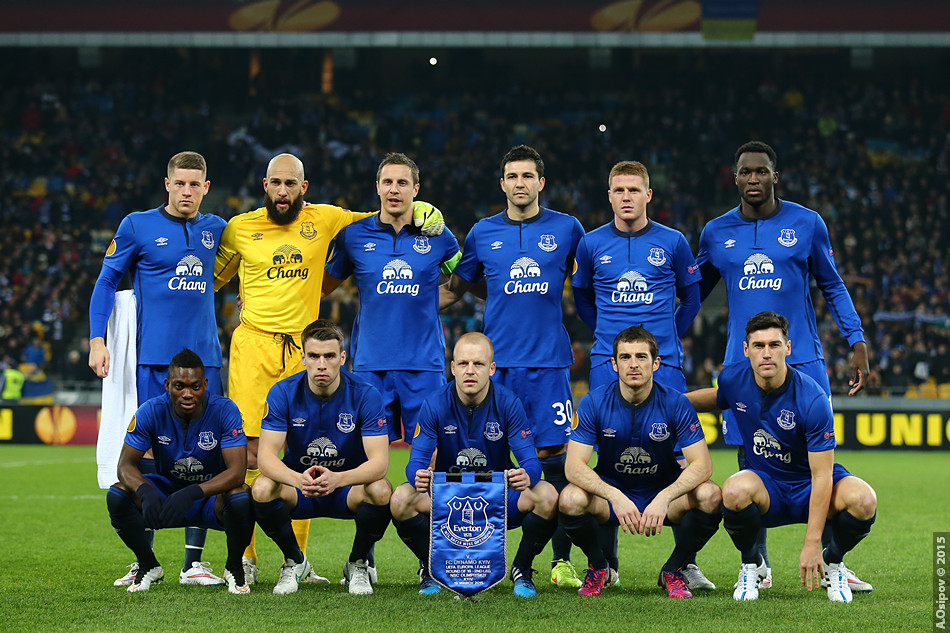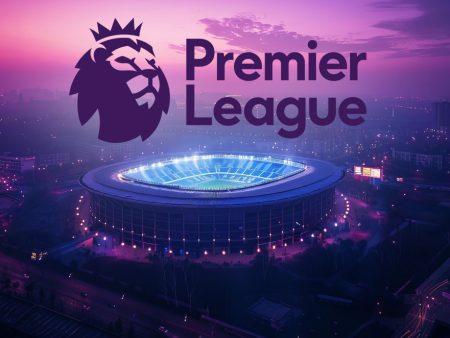
Welcome to the exciting world of Goodison Park, home to Everton, one of the most successful clubs in English football history. You’re about to learn everything there is to know about Goodison Park and the team that has called it home for nearly 130 years. From Everton’s early years to the club’s and stadium’s future, you’ll receive an in-depth look at the stadium’s history and development. You’ll learn why Goodison Park has been so important to Everton’s success.
So, take a trip with us through time to see how Goodison Park and Everton have worked together over the years.
History of the Stadium
Goodison Park has been a part of Everton’s history since it was built in 1892, making it one of the world’s longest continuously used stadiums. Archibald Leitch, a well-known Scottish architect, designed the stadium for the then-Everton FC. He designed the stadium using the most cutting-edge technology available at the time. It was England’s first stadium with an all-seater stand and the first with an iron roof covering the stands. It was also the country’s first stadium to use electric floodlights. Many historic matches have taken place at Goodison Park.
It played host to the 1966 FA Cup Final between Everton and Sheffield Wednesday, which Everton won 2-1. It hosted the European Cup Winners’ Cup Final in 1984, which Everton won 3-1 over Rapid Vienna. It has also hosted a number of significant international matches, notably England’s 5-1 victory over Germany in 2001 and Brazil’s 2-1 victory over England in 2002. Goodison Park has also witnessed some of the game’s best players. Alan Ball, Dave Hickson, and Dixie Dean are just a few of the celebrities who have graced the Goodison Park surface. Dean is the stadium’s all-time leading scorer, having scored 383 goals in 433 games.
Goodison Park is still the home of Everton FC and serves as a football arena today. Over the years, the stadium has undergone a number of upgrades, most notably the construction of a new state-of-the-art scoreboard and a new third tier in the Main Stand. The stadium also hosts a variety of other events, such as concerts and charity functions. Goodison Park is more than just a stadium; it is an important element of Everton’s history and a symbol of the club’s success. It has witnessed some of the greatest players and matches, and it remains a terrific place to watch football. It is a monument to the club’s dedication to greatness as well as a reminder of the club’s illustrious heritage.
Everton’s Early Years

You won’t believe how quickly Everton came to prominence in their early years! The club was created in 1878 by members of St. Domingo Methodist Church, which was located in Liverpool’s Stanley Park neighbourhood. Priory Road, just a few miles from Goodison Park, hosted the first team. They soon relocated to Anfield, then to the adjoining Stanley Park. Everton relocated to Goodison Park, then known as the Anfield Road enclosure, in 1892.
The ground was far more appropriate for a football club, and the team immediately gained popularity. Everton had won the Football League Championship by the end of the season. This was the club’s first of many victories at Goodison Park. Everton’s success was rapidly symbolised by Goodison Park. Every match, the team’s ardent supporters, known as the Gwladys Street End, filled the stadium with cheers and excitement. The stands were a sea of blue and white, Everton’s colours and the atmosphere was electrifying.
Other significant events for the club took place at Goodison Park. The club moved its offices to the stadium in 1895, and the club won its first FA Cup in 1899. Everton also won the League Championship in 1914, as well as the League Cup in 1977. Since 1892, Goodison Park has been the home of the mighty Everton, seeing the club’s victories and hardships. For the supporters, it’s a place of pride and honour, and for the players, it’s a place of wonderful memories. It is a testimony to Everton’s long and illustrious history.
Goodison Park’s Role
Goodison Park has been the proud home of Everton Football Club since the nineteenth century, and its significance in the club’s success cannot be emphasized. From the first ever FA Cup final in 1906 through the club’s eighth title win in 1985, Goodison Park has provided the setting for some of the most memorable moments in the club’s history. For almost a century, the stadium has been a symbol of Everton’s power and perseverance, and its existence is a source of enormous pride for the club’s supporters.
Goodison Park has remained a constant in the club’s history from its first game against Bolton Wanderers in 1892. The stadium has seen some of the club’s most passionate and vociferous support from fans who have never lost faith in Everton’s ability to achieve greatness. The atmosphere at Goodison Park has fueled the players’ motivation, propelling them to victory on the pitch. The stadium has also functioned as a communal hub in Liverpool, providing a safe and welcoming environment for people from all walks of life to come together and share their love of football supporters.
The stadium has hosted a number of charities matches and other events throughout its history, further demonstrating its important role in the local community. Goodison Park has been a constant in the club’s success story, and its future is just as important as its past. The stadium is currently undergoing renovations to ensure that it remains a beacon of hope for Everton’s passionate supporters. With the renovations underway, Goodison Park is sure to remain an integral part of Everton’s history for many years to come.
The Future of Goodison Park
Goodison Park, Everton’s famous stadium, has been a symbol of pride and endurance for over a century, and its future is as essential as its past. The stadium is currently undergoing a huge redevelopment to bring it up to modern standards and assure its continued presence in the city’s fabric. Everton fans, who have traditionally had a strong relationship with the stadium, have overwhelmingly supported the redevelopment. The stadium will be redeveloped with a new stand, a new seating section, better disability access, and expanded hospitality sections.
It will also have cutting-edge technology to provide the finest possible matchday experience. There will also be new retail and entertainment choices, including a museum and a café, as well as a new hotel and flats. This will assist to attract more visitors and benefit local businesses. While the redevelopment will undoubtedly give Goodison Park a much-needed facelift, it will also help to preserve the stadium’s heritage and tradition. The renovation will also help to guarantee that it remains an important element of the local community. A new stand, a new seating section, improved accessible access, and improved hospitality rooms will be part of the reconstruction.
It will be a meeting spot for families to watch football, as well as a venue for local businesses to grow and thrive. Goodison Park’s future is bright, and it will undoubtedly remain a symbol of pride and endurance for many years to come. It will be an even greater source of pride for the city of Liverpool with its new features and better infrastructure. It will be a location where people can come together to celebrate football, and it will provide joy and happiness to all who attend.
The Future of Everton
When it comes to Everton’s future, you can be certain that the same enthusiasm and loyalty to the club will go on. Everton has been one of the most successful teams in the English Premier League since its inception in 1878. The team’s fans are passionately loyal, and the club has been a part of Liverpool’s culture for decades. Despite the club’s triumphs, Everton’s future is uncertain. For several years, the squad has been looking for a new home. The team’s home since 1892, Goodison Park, is showing its age and has been declared inappropriate for modern football.
The team has considered several options, but none have been chosen. This has created uncertainty for the squad and its fans, as the team may be forced to leave its cherished home. To remain competitive in the future, the team has been looking at fresh prospects. In recent years, the organization has made significant investments in its youth system, signing some of the world’s greatest young players. To bolster the squad, they’ve also made several big-name acquisitions, like Moise Kean and James Rodrguez. The team has also considered increasing their commercial portfolio by forming collaborations with diverse businesses.
This will help the club produce more revenue and remain competitive as they try to expand on their triumphs in the future. Everton’s future is uncertain, but there is still reason to be optimistic. The team can stay competitive in the future and continue to deliver success to the city of Liverpool if it maintains its devotion to its fans and devoted players, as well as its investment in youth and commercial relationships. Everton is ready to meet any challenge that comes its way and will remain an important part of Liverpool’s culture.In an effort to bolster the squad, they’ve also made several big-name acquisitions, like Moise Kean and James Rodrguez. The group has also considered increasing their commercial portfolio.
Conclusion
You already know about Goodison Park and Everton’s long history there. Goodison Park has clearly been a crucial component of Everton’s success, from its humble beginnings to its current standing as an essential part of the club. Goodison Park’s future is uncertain, but whatever Everton’s next actions are, one thing is certain: Goodison Park will always be a part of the club’s history and legacy. So, keep in mind that Goodison Park and Everton will always be connected.










